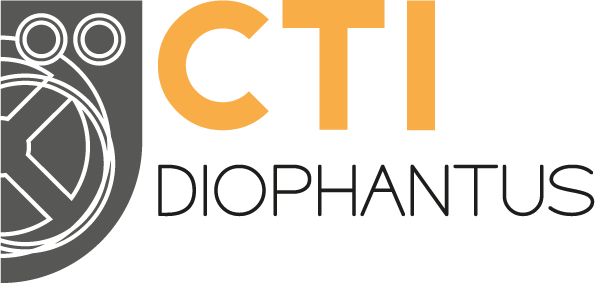The utilization and application of Digital Technologies/ Information and Communications Technologies in Education (ICT) in the teaching practice can make a significant contribution and bring positive results to the teaching and learning process.
For this reason, in the last few years, significant investment has been made worldwide in the development of computer and network school infrastructure as well as in the development of digital educational material. However, this investment cannot bring change without the support of parallel, presumably more significant and to the point, actions for the upgrading and modernization of the corresponding knowledge, skills and competences of the teachers, who constitute the “driving force” of the educational system.
In Greece, the need for primary and secondary school teachers to develop basic ICT knowledge, skills and competences was originally approached during 2000-2004, through the initiative known as A-Level ICT Teacher Training. This was later followed by the in-service Training of Teachers in the utilization and application of Digital Technologies in the teaching practice, known as B-Level ICT Teacher Training and addressed basic specialty teachers: Philology-Language, Mathematics, Physical Sciences, Informatics, Primary Education and Kindergarten Teachers.
The projects under the general title “In-service Training of Teachers in the utilization and application of Digital Technologies in the teaching practice (B-Level ICT Teacher Training)" (1st & 2nd Phase), implemented by the Computer Technology Institute and Press (CTI) – “Diophantus” (in particular by the Directorate of Training and Certification of CTI) acting as the beneficiary, in collaboration with the Institute of Educational Policy (IEP), constitute the continuation, and further development of the integrated training for the utilization and application of Digital Technologies in the teaching practice (B-Level ICT Teacher Training) which is being updated, upgraded, enriched in content and extended to all teacher disciplines.
The development and implementation of the new B-Level ICT teacher training concerns two levels of knowledge, skills and competences:
a. “Introductory training for the utilization of ICT in school” (B1-Level ICT teacher training, 36 teaching hours) and
b. “Advanced training for the utilization and application of ICT in the teaching practice” (B2-Level ICT teacher training, 60 teaching hours including activities for preparing “in-class practice”)
The combination of these two levels equals to the acquisition of knowledge, skills and competences corresponding to the integrated training for the utilization and application of ICT in the teaching process (B-Level ICT teacher training).
B1-Level and B2-Level ICT teacher training addresses primary and secondary school teachers of all specialties and disciplines.
Training programs are being implemented all around Greece in Teacher Training Support Centres of the TTSCs Registry by cluster of similar-related disciplines and specialties.
Four (4) “clusters” for teachers of similar or related specialties were initially foreseen for the introductory training for the utilization of ICT in school (B1-Level ICT teacher training)” and consequently, from 2016 to 2020 (1st Phase) four (4) distinct courses were developed and implemented, whereas for the advanced training for the utilization and application of ICT in the teaching practice (B2-Level ICT teacher training) 13 clusters for teachers of similar or related specialties and equal number of courses were foreseen, towards a greater specialisation and deepening of the program in specific areas of cognitive subjects.
Since 2022, for the 2nd Phase of teacher training, the upgrading of the method of implementation and the enrichment of the content of the B1-Level ICT teacher training has been foreseen so that it can be implemented in 13 clusters for teachers of similar or related specialties through equal number of courses, similarly to B2-Level ICT teacher training.
The lessons are being conducted by B-Level ICT teacher trainers / educators drawn from the Teacher Trainers Registry, usually once a week, outside school hours, in the form of two - three hour sessions, in groups of 10-15 people.
In the implementation of the programs, a flexible blended learning model is being applied to facilitate the participation of teacher trainees and teacher trainers/ educators as well as to allow the coverage of specific training needs (e.g. teachers from remote areas, areas with a small number of potential trainees or with a shortage in teacher trainers/educators as well as teachers who serve in Greek schools abroad etc).











